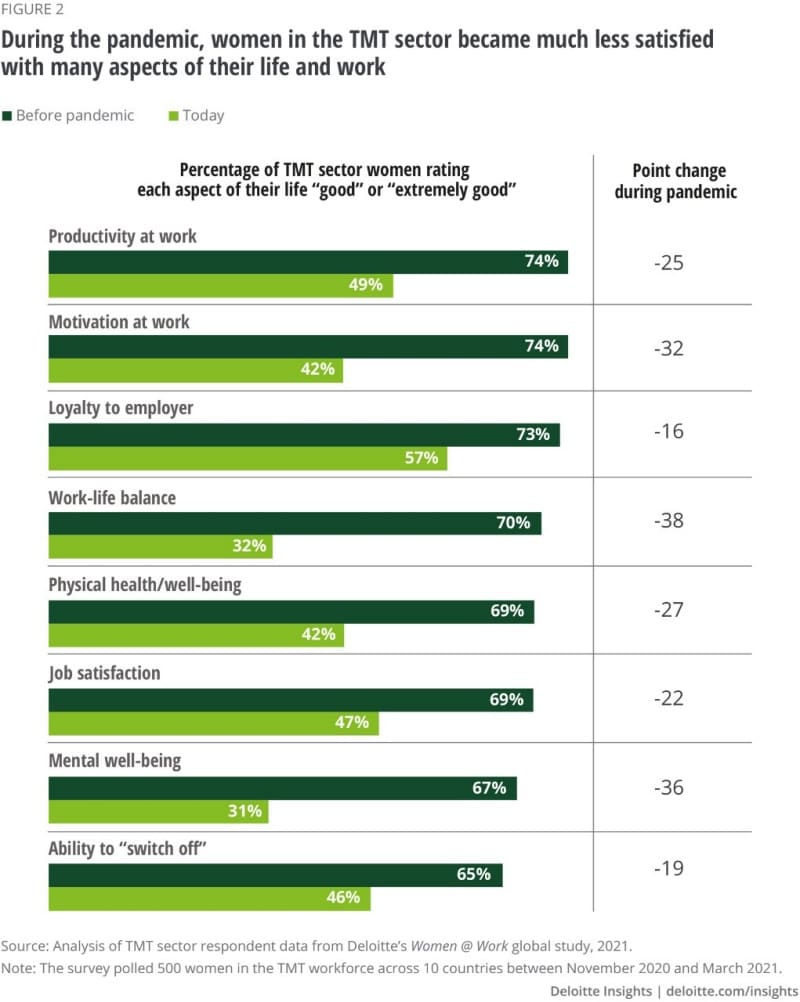This increase is small but actually represents notable progress. Moving the needle is difficult, and even aggressive campaigns to recruit, hire, retain, and promote women have been found to work slowly. Tech companies may need to work even harder to improve these numbers.
While high-profile tech players will likely continue to make and report increases in gender diversity, smaller tech companies with fewer resources will have a hard time attracting and keeping women in their roles. It’s difficult to pinpoint how these smaller companies are faring since they don’t typically report diversity data. A global tech startup study from 2019 found that only 43% had established companywide hiring and promotion goals to increase diversity. Without targets and transparency, smaller tech organizations may well be underperforming on gender diversity compared to their larger peers—and they may have fallen even further behind during the pandemic.
Well-known challenges to equitable female representation continue to be an issue. These factors include education, recruitment and hiring, retention, pay, and promotion. Adding to these challenges, the COVID-19 pandemic has taken a heavy toll on workers’ well-being and professional prospects.
The pressures from the pandemic may result in job churn among women and may even prompt some to leave the workforce. “A majority of TMT women (51%) feel less optimistic about their career prospects now than before the crisis broke, and 57% expect to leave their current employer for a new role within two years, citing lack of work/life balance as the biggest reason. What’s more, a startling 22% are considering leaving the workforce altogether, motivated chiefly by workload increases that are affecting their well-being,” Deloitte reports.
Google, Salesforce, and IBM, have responded to the pandemic by expanding programs for backup child care and paid family caregiver leave. Some have even created new flexible work and well-being programs. These include working from home, job sharing, free mental health counselling, collective disconnect days, and video programs with child-focused educational content.
Tech companies that proactively create programs and policies to help workers balance their caregiving and well-being needs with work responsibilities may be able to build greater loyalty and retain talent through trying times like today.
If you are interested in starting a new career in the industry join our Women in Tech webinar on March 31st where influential women in the industry discuss their experiences and share advice on how to succeed!

